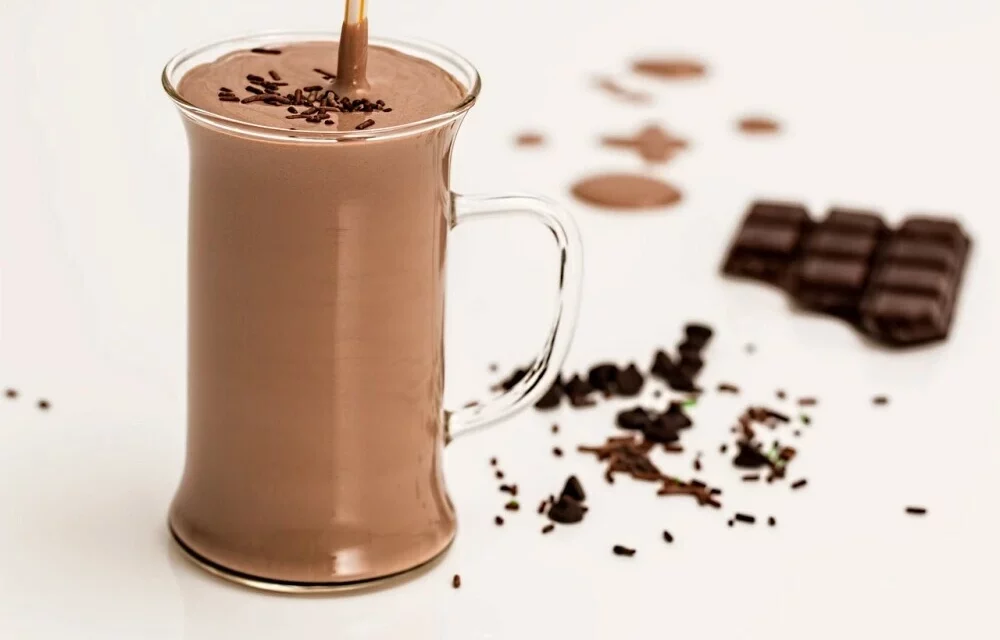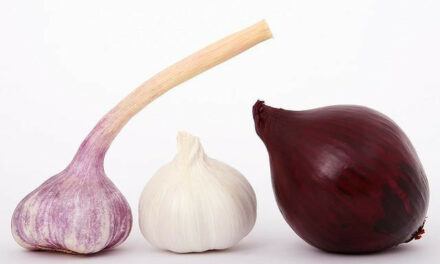Are you someone with diabetes trying to keep a healthy diet and lifestyle? If that’s the case, you understand how crucial it is to be careful about what you eat and drink. Although protein shakes are often promoted as a quick and healthy choice for people with hectic schedules or fitness aspirations, not all protein shakes are suitable for people with diabetes. In this article, we’ll explore the 12 worst protein shakes that diabetics should avoid at all costs in order to maintain stable blood sugar levels and overall health.
Many protein shakes out there have extra sugars, ‘fake’ sweeteners, or high-carb stuff that can mess with your blood sugar, especially if you have diabetes.
Let’s take a closer look at these troublesome protein shakes so that you can choose wisely and avoid those that could negatively impact your health. It’s important to understand why those managing diabetes best avoid these specific products.
The Importance Of Choosing The Right Protein Shake
Picking the right protein shake is key for your fitness and nutrition. There are loads of choices out there, so finding a top-notch one that can really help you reach your health targets. Not all protein shakes are made the same; some have bad stuff in them that can hold you back instead of pushing you forward.
Also, a good protein shake can help your muscles recover and grow after tough workouts. The amino acids in quality proteins are crucial for repairing and rebuilding muscle tissue, so they’re a must for your post-workout routine.
It’s also important to pick a protein powder or shake that your body can easily digest to get the most out of it. This way, your body can absorb the nutrients it needs to recover and get stronger.
Easier to understand the protein shakes that diabetics should avoid, when you know the characteristics of a good protein shake…
7 Characteristics Of A Good Protein Shake For Diabetics
Discovering the ideal protein shake for diabetics involves considering key characteristics. Here are seven essential features ensuring a diabetes-friendly and nutritious beverage:
1. Low Sugar Content
If you’re looking for a protein shake that’s diabetic-friendly, it’s important to choose one with low sugar. Too much sugar can make your blood glucose levels shoot up, which can be risky for people with diabetes.
Look for shakes sweetened with natural options like stevia or monk fruit, and steer clear of ones with added sugars or high fructose corn syrup.
2. High Protein Content
A good protein shake for diabetics should provide a substantial amount of protein. Protein helps stabilize blood sugar levels and promotes a feeling of fullness, reducing the temptation to snack on unhealthy foods.
Look for shakes with at least 15-20 grams of protein per serving.
3. Fiber-Rich
Incorporating fiber into a protein shake is beneficial for diabetics. Fiber slows down the absorption of sugar, helping to maintain steady blood glucose levels.
Choose shakes that include sources of soluble fiber like chia seeds, flaxseeds, or vegetables to enhance digestive health.
4. Low Carbohydrate Content
Managing carbohydrate intake is vital for individuals with diabetes. A good protein shake for diabetics should be low in carbohydrates, especially simple carbs.
Check the nutrition label for net carbs, which takes into account the fiber content, providing a more accurate representation of the impact on blood sugar.
5. Healthy Fats
Including healthy fats in a protein shake can contribute to overall health and satiety.
Opt for shakes with sources of omega-3 fatty acids, such as chia seeds or flaxseed oil. These fats can support heart health and help control blood sugar levels.
6. Vitamins and Minerals
A well-rounded protein shake for diabetics should not only focus on protein but also provide essential vitamins and minerals.
Look for shakes enriched with nutrients like vitamin D, calcium, and magnesium, which play crucial roles in maintaining overall health, especially for those with diabetes.
7. Gluten-Free and Lactose-Free Options
Consideration for dietary restrictions is key. Many individuals with diabetes may also have sensitivities to gluten or lactose. Choose protein shakes that are explicitly labeled gluten-free and, if necessary, opt for lactose-free or plant-based alternatives to ensure easy digestion.
And, don’t forget to chat with a healthcare professional or a dietitian before you shake up your diet. It’s important to make sure the protein shake you pick is right for your health and dietary needs.
With that in mind, let’s dig into the characteristics of a protein shake a diabetic should avoid.
7 Characteristics of A Bad Protein Shake For Diabetics
Understanding what to avoid is just as crucial as recognizing positive attributes. Here are seven things to look out for when choosing a protein shake if you have diabetes. It’ll help you pick the right one for your health.
1. High Sugar Content
A bad protein shake for diabetics contains high amounts of added sugars, which can spike blood glucose levels.
2. Synthetic Sweeteners
Protein shakes with artificial sweeteners like aspartame or sucralose can negatively impact insulin sensitivity and should be avoided by diabetics.
3. High Carbohydrate Content
Just like high surgar content, be careful with protein shakes that have a lot of carbs because they can cause your blood sugar to shoot up quickly.
4. Low Fiber
Inadequate fiber content in a protein shake can result in quicker digestion and absorption of carbohydrates, potentially causing blood sugar spikes.
5. Artificial Additives
Be mindful of the protein shakes that have artificial stuff like preservatives, colors, or flavors. They are very likely to mess with your blood sugar control.
6. Undisclosed Ingredients
Shakes without clear ingredient lists or those with hidden sources of added sugars or carbohydrates are not suitable for diabetics.
7. Lack of Protein Quality
Poor-quality proteins, such as those from low-grade sources or highly processed ingredients, do not provide adequate nutrition and may affect blood sugar management in diabetic individuals.
With that knowledge, now here is the list of 12 worst protein shakes for diabetes.
12 Worst Protein Shakes List For Diabetics
Some protein shakes are loaded with sugar, artificial sweeteners, unhealthy fats, and other ingredients that can spike your blood sugar levels and cause inflammation. Here are 12 of the worst protein shakes for diabetics that you should avoid at all costs.
1. Premier Protein High Protein Shake
Premier Protein Shake has 30 grams of protein, which may sound impressive, but it also has 5 grams of sugar and 3 grams of fat, including 1 gram of saturated fat. It also contains artificial flavors, sucralose, and carrageenan, which are linked to digestive issues and inflammation.
2. Muscle Milk Genuine Protein Shake, Vanilla Crème.
This shake is loaded with 25 grams of protein, but it also comes with a hefty 11 grams of sugar and 9 grams of fat, including 2.5 grams of saturated fat. On top of that, it’s got maltodextrin, which can quickly shoot up your blood sugar levels.
3. SlimFast Advanced Nutrition Creamy Chocolate Shake
SlimFast shake claims to be a meal replacement that can help you lose weight, but it is actually a sugar bomb that can sabotage your blood sugar control. It has 20 grams of protein, but it also s 11 grams of sugar and 9 grams of fat, including 1.5 grams of saturated fat.
It also contains artificial flavors, sucralose, and ace-K, which are associated with weight gain and metabolic disorders.
4. Ensure Original Nutrition Shake, Milk Chocolate
Ensure is marketed as a complete and balanced nutrition for people who need extra calories and protein, but it is actually a highly processed drink that could harm your health. It has 9 grams of protein, but it also has 15 grams of sugar and 6 grams of fat, including 1 gram of saturated fat. It also contains corn syrup, sugar, artificial flavors, and synthetic vitamins and minerals.
5. Boost High Protein Complete Nutritional Drink
Similar to Ensure, but Boost comes with more protein and less sugar. It has 20 grams of protein, but it also has 10 grams of sugar and 6 grams of fat, including 1 gram of saturated fat. It also contains corn syrup, sugar, artificial flavors, and synthetic vitamins and minerals.
6. Pure Protein Shake, Frosty Chocolate
The protein content of this shake is 35 grams, which may seem like a lot, but it also has 4 grams of sugar and 2.5 grams of fat, including 1.5 grams of saturated fat. It also contains artificial flavors, sucralose, and ace-K, which can disrupt your gut microbiome and hormone balance.
7. Quest Protein Shake, Chocolate
Packing a punch with 30 grams of protein, this shake may seem like a powerhouse, but don’t be fooled. It’s coupled with 4 grams of sugar and 3.5 grams of fat, including 2 grams of saturated fat. What’s more, it harbors erythritol, a sugar alcohol notorious for inducing bloating and diarrhea, along with soluble corn fiber, a heavily processed ingredient known to trigger gas and inflammation.
8. Atkins Protein-Rich Shake, Milk Chocolate Delight
It is designed for people who follow a low-carb diet, but it may not a good choice for diabetics. It has 15 grams of protein, but also has 1 gram of sugar and 9 grams of fat, including 3 grams of saturated fat. It also contains artificial flavors, sucralose, and ace-K, which can increase your appetite and cravings.
9. Orgain Organic Protein Shake, Creamy Chocolate Fudge
This shake is made with organic ingredients, but that does not mean it is healthy for diabetics. It has 21 grams of protein, but it has 12 grams of sugar and 7 grams of fat, including 1 gram of saturated fat. It also contains organic cane sugar, organic agave, and organic brown rice syrup, which are still sources of added sugar that can raise your blood sugar levels.
10. Soylent Complete Protein Shake
Designed as a comprehensive meal substitute supplying all the vital nutrients your body requires, this shake, in reality, is a heavily processed beverage that poses potential risks to your well-being.
Boasting 30 grams of protein, it also harbors 9 grams of sugar and 21 grams of fat, incorporating 1.5 grams of saturated fat. Additionally, its composition includes maltodextrin, isomaltulose, and synthetic vitamins and minerals.
11. Gatorade Super Shake
Gatorade shake is marketed as a post-workout recovery drink that can help you build muscle and replenish electrolytes, but it may actually a sugary drink that can undo your hard work. It has 30 grams of protein, but it also has 20 grams of sugar and 7 grams of fat, including 4 grams of saturated fat. It also contains sugar, fructose, and artificial flavors.
12. Kellogg’s Special K Protein Shake
Marketed as a weight-loss aid and satisfaction provider, this shake turns out to be a subpar choice that might lead to weight gain and increased hunger.
With 15 grams of protein, it packs 18 grams of sugar and 5 grams of fat, including 0.5 grams of saturated fat. Plus, it includes sugar, corn syrup, and artificial flavors in its composition.
Let’s do a content comparison of the above shakes to understand the worst of the worst.
| Protein Shake | Protein Content (g) | Sugar Content (g) | Fat Content (g) | Saturated Fat (g) | Concerning Ingredients |
| Premier Protein High Protein Shake, Chocolate | 30 | 5 | 3 | 1 | Artificial flavors, sucralose, carrageenan |
| Muscle Milk Genuine Protein Shake, Vanilla Crème | 25 | 11 | 9 | 2.5 | Maltodextrin, artificial flavors |
| SlimFast Advanced Nutrition Creamy Chocolate Shake | 20 | 11 | 9 | 1.5 | Artificial flavors, sucralose, ace-K |
| Ensure Original Nutrition Shake, Milk Chocolate | 9 | 15 | 6 | 1 | Corn syrup, sugar, artificial flavors |
| Boost High Protein Complete Nutritional Drink | 20 | 10 | 6 | 1 | Corn syrup, sugar, artificial flavors |
| Pure Protein Shake, Frosty Chocolate | 35 | 4 | 2.5 | 1.5 | Artificial flavors, sucralose, ace-K |
| Quest Protein Shake, Chocolate | 30 | 4 | 3.5 | 2 | Erythritol, soluble corn fiber |
| Atkins Protein-Rich Shake, Milk Chocolate Delight | 15 | 1 | 9 | 3 | Artificial flavors, sucralose, ace-K |
| Orgain Organic Protein Shake, Creamy Chocolate Fudge | 21 | 12 | 7 | 1 | Organic cane sugar, organic agave, organic brown rice syrup |
| Soylent Complete Protein Shake | 30 | 9 | 21 | 1.5 | Maltodextrin, isomaltulose, synthetic vitamins and minerals |
| Gatorade Super Shake, Chocolate | 30 | 20 | 7 | 4 | Sugar, fructose, artificial flavors |
| Kellogg’s Special K Protein Shake, Milk Chocolate | 15 | 18 | 5 | 0.5 | Sugar, corn syrup, artificial flavors |
Note: Gatorade Super Shake and Kellogg’s Special K Protein Shake have to highest sugar content among all.
These are some of the worst protein shakes for diabetics that you should avoid. Instead, you should opt for protein shakes that are low in sugar, high in fiber, and made with natural ingredients.
Other Considerations For Diabetics When Choosing A Protein Shake
Picking the right protein shake for people with diabetes involves more than just looking at the nutrients and ingredients. Take these factors into account to make a smart choice that fits your health objectives:
1. Glycemic Index (GI)
Keep an eye on the glycemic index, which tells you how fast a food can make your blood sugar go up. Choose protein shakes with a low to medium GI to avoid sudden jumps in glucose levels and help keep your blood sugar in check.
2. Carbohydrate Source
Check out where the carbs in the protein shake are coming from.
Opt for shakes that have complex carbs and fiber, as they won’t spike your blood sugar as quickly as simple carbs.
3. Meal Replacement vs. Supplement
So, you’ve got your protein shakes, right? Well, there are two types: meal replacements and supplements.
The meal replacements are all about giving you a good mix of nutrients to keep you going, while the supplements are more about packing in that protein. Think it out which one are you looking for.
4. Artificial Additives
Try to cut down on the amount of artificial additives you consume, like flavors, sweeteners, and preservatives. These additives can mess with your blood sugar levels and impact your health in ways that are hard to predict.
5. Digestive Tolerance
Pay attention to how your body reacts to different protein sources. Some individuals with diabetes may experience digestive discomfort with certain proteins. Consider shakes with easily digestible protein sources.
6. Hydration Needs
Ensure your chosen protein shake doesn’t compromise your hydration. Some shakes may contain high levels of sodium, affecting fluid balance. Opt for options that contribute to your overall hydration needs.
7. Individual Nutrient Requirements
Take into account your individual nutrient requirements. Depending on your overall diet and health status, you may need specific vitamins or minerals. Choose a protein shake that complements your nutritional needs.
8. Consultation with Healthcare Professional
Always consult with a healthcare professional or a registered dietitian before incorporating a new protein shake into your diet. They can provide personalized advice based on your health condition, medications, and dietary requirements.
9. Personal Taste Preferences
While considering nutritional factors, also factor in your taste preferences. Enjoying the taste of your protein shake ensures that it becomes a sustainable and enjoyable part of your dietary routine.
10. Monitoring Blood Sugar Levels
Regularly monitor your blood sugar levels when introducing a new protein shake. This helps you assess how your body responds and allows for adjustments to your dietary plan if needed.
Final Words
It’s really important for people with diabetes to be careful about which protein shakes they choose so that they don’t have any bad effects on their health. After going through this, you are now well aware of the worst protein shakes for diabetics, which must be avoided because they have a lot of sugar, fake sweeteners, and possibly harmful extra stuff.
Once you know about the issues with certain protein shakes, you can choose your drinks wisely and take better care of your health. It’s really important to talk to a doctor or nutritionist before trying any new protein shake if you have diabetes so it fits your specific health needs.
With the right support, diabetics can make healthier choices and better regulate their blood sugar levels.












